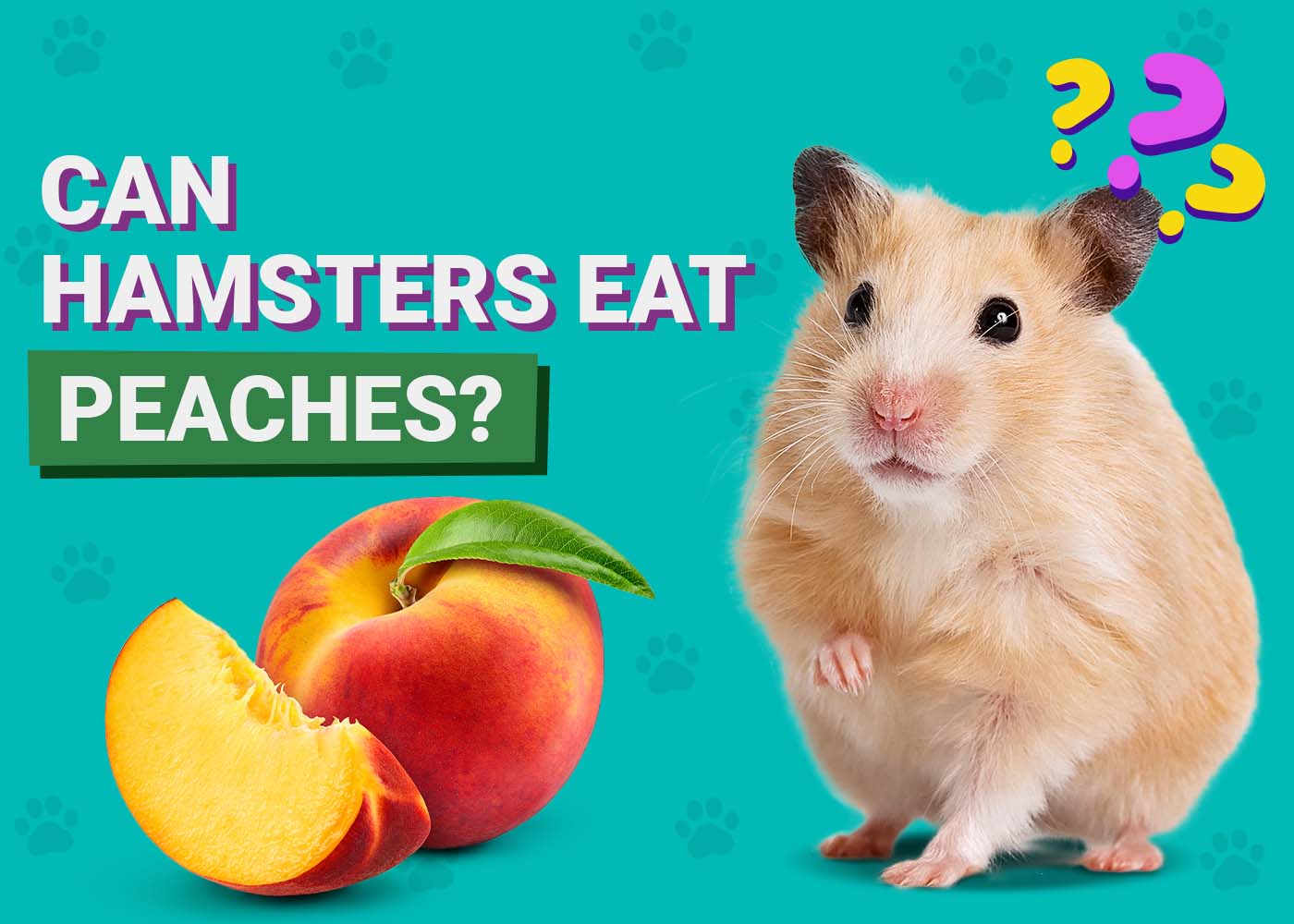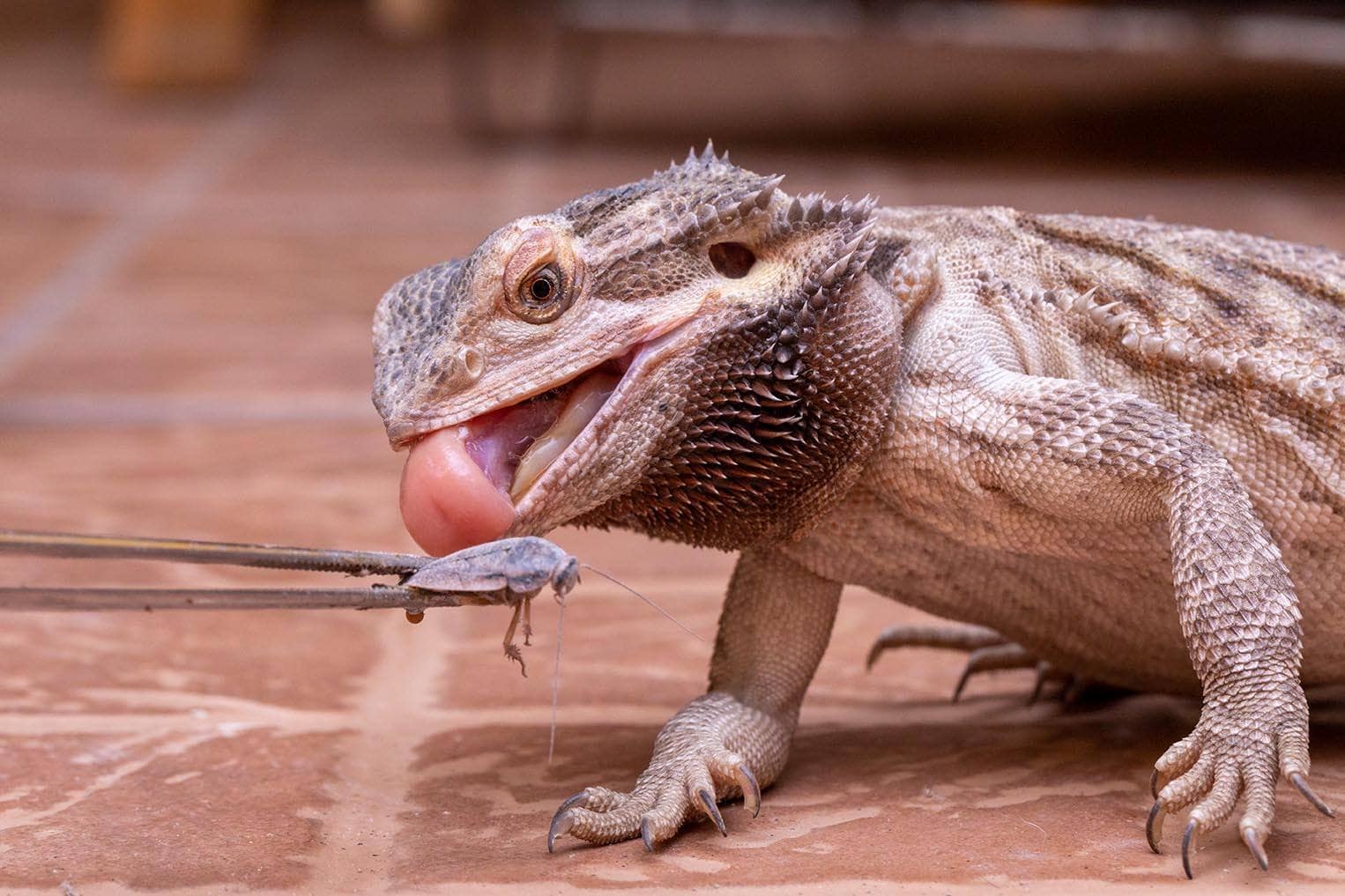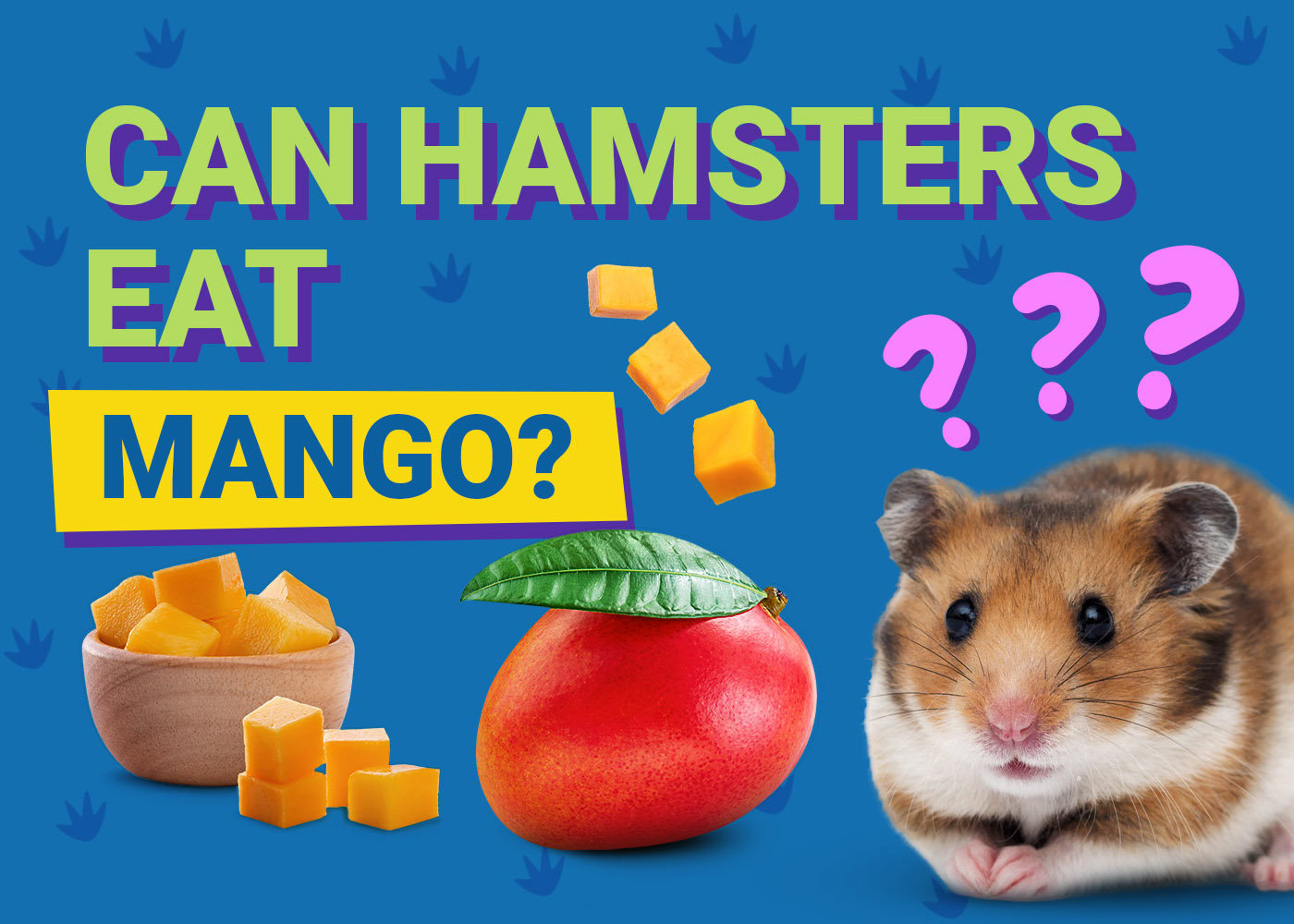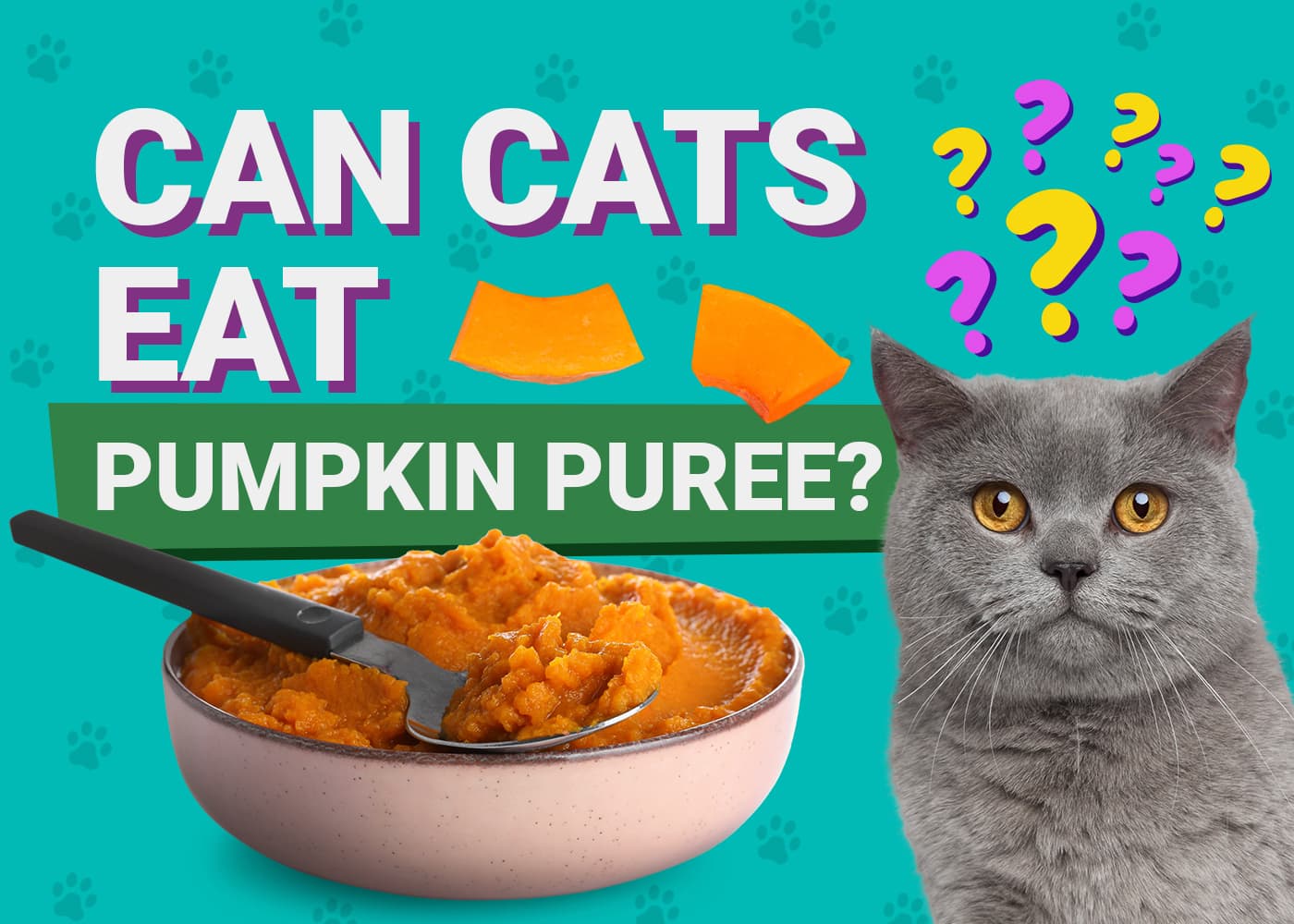Click to Skip Ahead
Hamsters make great pets, and we all want the best for our furry friends. Giving them treats and trying new foods can be fun for us and an enriching experience for them. But it can be hard to know what is and is not safe to give them.
Humans have a huge, varied diet and we love to share with our pets, but most of our pets just can’t safely eat all the things that we do. If you have ever wondered if your hamster can have peaches, you’ll be happy to learn they can!

Yes, Hamsters Can Eat Peaches!
Hamsters are omnivores, meaning their natural diet consists of plants and animals. In the wild, hamsters will eat fruits, vegetables, and plants they find on the ground.
Domestic hamsters have the same dietary needs as their wild cousins, which we usually meet by giving them high-quality hamster food. However, hamsters can enjoy treats and foods outside their normal diet from time to time.
The short answer is yes, hamsters can eat peaches!
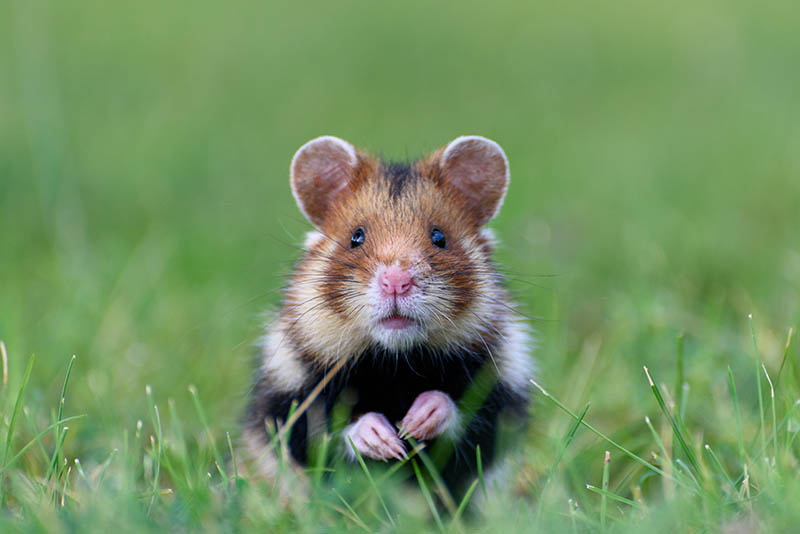
Are Peaches Safe for Hamsters?
This is where the complex needs of a hamster’s diet come in. Peaches are high in vitamins, like vitamins A and C, which your hamster needs, but peaches are also high in sugar.
Most hamsters will gleefully eat a peach if you give it to them, but it’s important to only provide fresh peaches to hamsters, and they need to be washed thoroughly before serving to clean off any pesticides or bacteria.
Canned peaches should not be given to hamsters because they are extremely high in added sugar. They are usually packed in syrups, but even canned peaches packed in water have higher sugar levels than fresh peaches. Frozen peaches often have added sugar as well, but it may be possible to find fresh, frozen peaches. Dried peaches are also generally high in added sugar and can cause a sticky mess in your hamster’s environment.
Canned, frozen, and dried peaches will often have preservatives your hamster does not need, while fresh peaches will not.
How Much Peach Can I Feed My Hamster?
Due to the high sugar content in peaches and the size of hamsters, peaches should only be fed in very small quantities. Some varieties of hamsters are more prone to obesity and obesity-related diseases—like diabetes—than others.
Dwarf hamsters should only be provided with tiny, paw-sized or smaller pieces of fresh peach as a treat every two weeks or so, as they are prone to obesity.
Roborovski and Syrian hamsters are larger varieties of hamsters and less prone to obesity than Dwarf varieties, so they can be given a small piece of peach weekly as a treat, but the piece should be approximately paw-sized.
Over-feeding peaches to hamsters of any variety can result in diarrhea, lethargy, and even teeth issues.
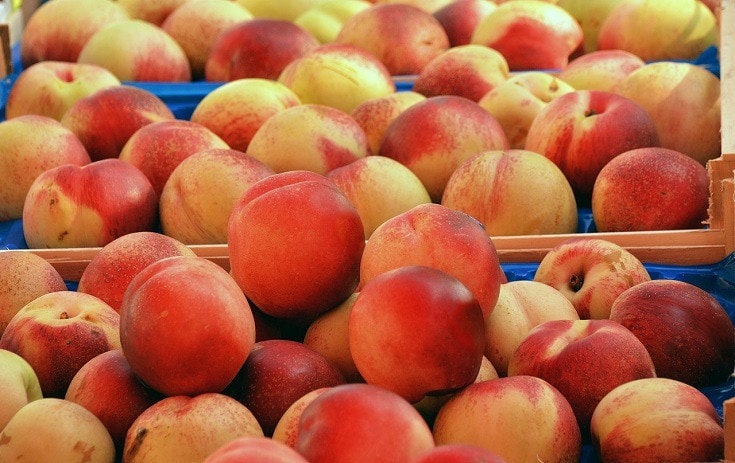
What Else Should I Consider When Feeding Peaches to My Hamster?
When feeding peaches, or any fresh foods, to hamsters, uneaten pieces of food should be removed from the cage within a few hours to prevent bacterial growth and rot. Leaving fresh foods in your hamster’s cage too long will negatively impact the cleanliness of the hamster’s environment, which will directly affect the hamster’s hygiene and health.
Remember that hamsters may hold food in their cheeks or hide it to eat later, so keep a close eye out for squirreled away snacks.
Another consideration when feeding peaches to hamsters is to never give them any part of the peach pits. Peach pits have no nutritional value for hamsters and can become lodged in the back of the mouth or throat, leading to swallowing or breathing difficulties. Peach pits may also be difficult for your hamster to digest, leading to digestive problems. Any of these issues may require veterinary intervention.

Conclusion
Peaches should not be given as a dietary staple for hamsters due to their high sugar content. There are well-developed, pre-made hamster foods that will ensure their nutritional needs are met. Any food outside of this should be fed exclusively as a treat or as a very small portion of the hamster’s diet.
If your hamster has existing medical problems, like diabetes, peaches should be avoided. Consulting your veterinarian before trying new foods will help keep your hamster healthy and happy throughout its life.
Featured Image Credit: CC0 Public Domain, pxhere
